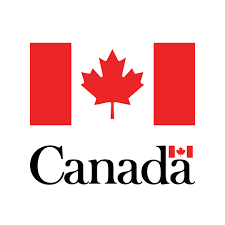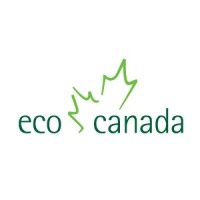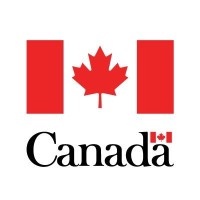
Destruction of PFAS compounds in contaminated media
At a glance
- Maximum amount : 200,000 $
- Open Date : October 9, 2024
- Closing date : November 20, 2024
- Professional, scientific and technical services
- Administrative and support, waste management and remediation services
- Canada
- For-profit business
- All revenue ranges
- 499 employees maximum
- Startups
Overview
The grant, offered by Canada's National Research Council (NRC), Environment and Climate Change Canada (ECCC), Health Canada (HC), and Public Services and Procurement Canada (PSPC), aims to support innovative, cost-effective, and scalable solutions for the destruction of per- and polyfluoroalkyl substances (PFAS) across various contaminated media. Eligible activities include research and development of technologies for defluorination and mineralization of PFAS, ensuring at least 99% destruction efficiency while preventing harmful by-products, within a technology readiness level of 1-4.
Eligibility
Eligibility for this grant is determined by specific requirements related to the applicant's business status and operations in Canada.
- The solution proposals can only be submitted by a small business.
- The business must be for-profit.
- The business must be incorporated in Canada, either federally or provincially.
- The business must have 499 or fewer full-time equivalent (FTE) employees.
- Research and development activities must take place in Canada.
- 50% or more of the business's annual wages, salaries, and fees must be paid to employees and contractors who spend the majority of their time working in Canada.
- 50% or more of the business's FTE employees must have Canada as their ordinary place of work.
- 50% or more of the business's senior executives (Vice President and above) must have Canada as their principal residence.
Who is eligible?
This grant is specifically designed for small businesses in Canada that are actively involved in research and development and meet certain eligibility requirements.
- For-profit small businesses incorporated in Canada, either federally or provincially.
- Businesses with 499 or fewer full-time equivalent (FTE) employees, including affiliated businesses.
- Businesses conducting research and development activities within Canada.
- Businesses with 50% or more of their annual wages, salaries, and fees paid to employees and contractors who primarily work in Canada.
- Businesses where 50% or more of FTE employees have Canada as their ordinary place of work.
- Businesses where 50% or more of senior executives (Vice President and above) have Canada as their principal residence.
Who is not eligible
The provided grant details do not specify particular types of companies or industries that are ineligible to apply. However, eligibility criteria suggest a focus on supporting innovative small businesses within Canada.
Eligible expenses
This grant focuses on fostering technological solutions to address the environmental and health risks posed by PFAS contamination. The eligible projects are centered on the development, validation, and potential deployment of new approaches for the effective decontamination of PFAS.
- Conducting bench-scale tests to prove feasibility of PFAS destruction solutions.
- Researching and developing innovative technologies for defluorination of PFAS compounds.
- Evaluating scalability and cost-effectiveness of new PFAS treatment processes.
- Ensuring compliance of solutions with Canadian environmental regulations while maintaining efficacy in diverse media.
- Providing analytical validation through independent laboratory evidence of PFAS destruction and by-products management.
- Proposing environmentally sound integration techniques with existing waste management infrastructure.
Eligible geographic areas
This grant is focused on companies incorporated in Canada. The eligible locations pertain specifically to Canadian companies to support research and development within the country.
- Businesses federally incorporated in Canada.
- Companies provincially incorporated within Canada.
How to apply
Verify Eligibility - Ensure your business meets all eligibility criteria, including being a small for-profit business incorporated in Canada with 499 or fewer full-time equivalent employees and that R&D activities take place in Canada.
Review Challenge Details - Carefully read through the official Grant Instructions and Procedures document and the Desired Outcomes section to understand all mandatory and additional outcomes required for the solution.
Develop Proposal - Create a comprehensive proposal detailing your innovative solution, its scientific and technological basis, current technology readiness level, and how it addresses the challenge's essential and additional outcomes.
Demonstrate Innovation - Highlight how your solution meets ISC's definitions of innovation and advances the state of the art compared to existing technologies.
Identify and Mitigate Risks - Identify potential scientific, technological, and project risks, and outline mitigation strategies for each.
Develop Project Plan - Prepare a detailed Phase 1 project plan, including milestones, activities, and the estimated exit technology readiness level.
Assemble Implementation Team - Ensure your project implementation team has the required management and technological skill sets and experience to deliver the project plan.
Address Inclusivity - Outline policies or initiatives to increase participation of under-represented groups in the R&D effort.
Establish Financial Controls - Describe financial controls, tracking, and oversight mechanisms to manage funds throughout Phase 1.
Prepare for Phase 2 - Provide an overview for the Phase 2 prototype development plan, including key tasks and estimated costs.
Submit Proposal - Use the Challenge Stream Submission Form to submit your proposal before the closing date of November 20, 2024, 14:00 Eastern Time.
Additional information
This grant targets small businesses incorporated in Canada, emphasizing innovations in PFAS destruction technology. The challenge includes two phases with specific funding caps and a requirement to demonstrate scalable and cost-effective solutions.
- The maximum funding for Phase 1 is $200,000 CAD for a duration of up to 6 months, while Phase 2 offers up to $1,500,000 CAD for 18 months.
- Travel is not anticipated for Phase 1, but some is expected in Phase 2 for pilot testing.
- Eligibility requires the applicant to be a Canadian-incorporated small business with less than 499 full-time employees and significant operations in Canada.
- The challenge encourages inclusivity and greater participation from under-represented groups in the research and development process.
- Phase 2 participants will need to provide a detailed project plan including key tasks, cost estimates, human resources, risks, and mitigation strategies.
Frequently Asked Questions about the Destruction of PFAS compounds in contaminated media Program
What is the Destruction of PFAS compounds in contaminated media?
How much funding can be received?
What is the deadline to apply?
Who is eligible for the Destruction of PFAS compounds in contaminated media program?
Who can I contact for more information about the Destruction of PFAS compounds in contaminated media?
Where is the Destruction of PFAS compounds in contaminated media available?
Is the Destruction of PFAS compounds in contaminated media a grant, loan, or tax credit?
More programs like this

Industrial Research Assistance Program (IRAP) – AI Assist
National Research Council Canada (NRC)
Strategic Innovation Fund (SIF)
Innovation, Science and Economic Development Canada (ISED)
Industrial Research Assistance Program (IRAP) — Youth Employment Program (YEP)
National Research Council Canada (NRC)
Mitacs Accelerate
Mitacs
NRC IRAP – Support for clean technology
National Research Council Canada (NRC)
ISED — Artificial intelligence (AI)
Innovation, Science and Economic Development Canada (ISED)
Global Innovation Clusters
Innovation Canada
IP for Business
Canadian Intellectual Property Office (CIPO)
ECO Canada — Student Work Placement Program
ECO Canada